Ethics Complaints Against Kavanaugh Face New Appeals After 10th Circuit Rejection
"I think there is a public interest in getting these questions put to rest—to the extent that an authoritative decision within the system can do that," one judicial ethics scholar says.
April 29, 2019 at 11:44 AM
6 minute read
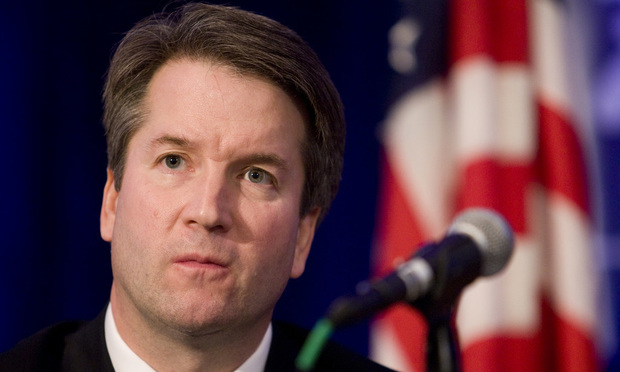 U.S. Supreme Court Justice Brett M. Kavanaugh. Photo by Diego M. Radzinschi/NATIONAL LAW JOURNAL
U.S. Supreme Court Justice Brett M. Kavanaugh. Photo by Diego M. Radzinschi/NATIONAL LAW JOURNAL
A committee of the Judicial Conference of the United States has been asked to review orders dismissing misconduct complaints against now-Justice Brett Kavanaugh that stem from his 2017 U.S. Supreme Court confirmation hearings.
Petitions challenging the Tenth Circuit Judicial Council's orders were filed last week with the federal judiciary's Committee on Judicial Conduct and Disability, headed by Judge Anthony Scirica of the Third Circuit. The committee, citing confidentiality rules, declined to comment on the number or the nature of any petitions filed.
Two petitions, shared with The National Law Journal, were submitted by New York lawyer Jeremy Bates, who serves as a member of the committee on professional ethics of the New York City Bar Association, and Paul Horvitz, a financial news editor and Massachusetts resident who is not a lawyer.
The Tenth Circuit Judicial Council has twice now shut down misconduct claims against Kavanaugh based on the fact he is now a Supreme Court justice. Judiciary conduct rules apply to federal trial and appellate judges but not to the justices themselves. The claims against Kavanaugh are testing a system that allows a judge to avoid investigation and possible discipline because he or she is elevated to the Supreme Court, or resigns or retires.
“Intervening events” over the past year or so have shut down other investigations of alleged judicial misconduct. In December, then-Judge Alex Kozinski retired from the Ninth Circuit shortly after an investigation was opened into sexual misconduct complaints. And this month, President Donald Trump's older sister, Judge Maryanne Trump Barry, retired from the Third Circuit. The retirement ended a judicial investigation into whether she violated conduct rules by allegedly committing tax fraud.
“I think there is a public interest in getting these questions put to rest—to the extent that an authoritative decision within the system can do that—at the earliest possible time,” said Arthur Hellman, a federal courts scholar at the University of Pittsburgh School of Law, about the Kavanaugh complaints.
The Tenth Circuit Judicial Council in March denied 20 appeals of its earlier dismissal of 83 misconduct complaints filed before and after Kavanaugh's October confirmation.
The judicial council voted 6-1 to reaffirm its decision that an “intervening event”—Kavanaugh's elevation to the Supreme Court—deprived it of jurisdiction.
“The lack of jurisdiction over Justice Kavanaugh precludes an investigative and fact-finding process, even over conduct allegedly committed while Justice Kavanaugh was a covered judge,” the majority, which included Chief Judge Timothy Tymkovich, wrote.
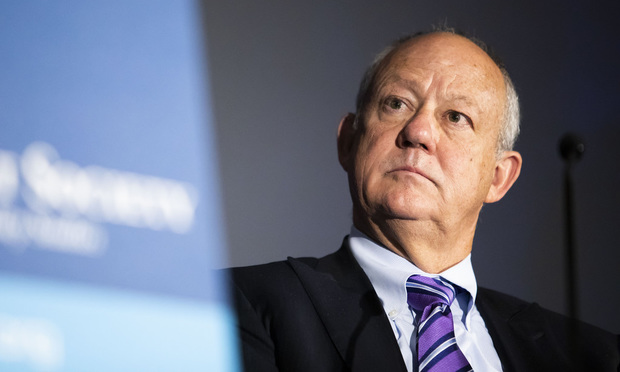 Judge Timothy Tymkovich during a panel discussion at the Federalist Society in 2018. Credit: Diego M. Radzinschi / NLJ
Judge Timothy Tymkovich during a panel discussion at the Federalist Society in 2018. Credit: Diego M. Radzinschi / NLJJudge Mary Beck Briscoe dissented, saying it was improper of the council to sit in review of its own decision. Judge Carlos Lucero recused, writing that he was disqualified from reviewing the “petitions for review” for the reasons stated in Briscoe's dissent.
Briscoe's dissent spurred the further appeals, filed Friday, to the Committee on Judicial Conduct and Disability.
Many of the original Kavanaugh complaints, including those filed by Bates and Horvitz, stemmed from statements the then-circuit judge made on Sept. 27 at his confirmation hearing to the Supreme Court.
A California professor named Christine Blasey Ford had testified that Kavanaugh, as a high school student in suburban Maryland in the 1980s, sexually assaulted her. Kavanaugh denounced the claim, leveling a partisan diatribe against Senate Judiciary Democrats and accusing them of a “search and destroy” mission.
[falcon-embed src="embed_1"]
Kavanaugh subsequently retreated from some of his remarks, saying, “I said a few things I should not have said.”
“I believe that an independent and impartial judiciary is essential to our constitutional republic. If confirmed by the Senate to serve on the Supreme Court, I will keep an open mind in every case and always strive to preserve the Constitution of the United States and the American rule of law,” Kavanaugh wrote in a Wall Street Journal op-ed after his controversial testimony.
Bates's petition to the Judicial Conference committee said the Tenth Circuit Judicial Council's March order rested on a legal error. “The March order entirely failed to analyze the real issue—whether judicial-misconduct jurisdiction is determined at the time of filing,” Bates said in his appeal.
Kavanaugh was still a federal appeals judge when Bates filed his ethics complaint. The “time-of-filing rule” says federal court jurisdiction depends on the state of things at the time an action is brought.
Bates has urged the committee to apply the rule to judicial misconduct proceedings. The rule, he said in his appeal, would prevent evasions of investigations through resignations or elevation of judges; discourage manipulation of jurisdiction by a Senate rushing a nominee faced with misconduct allegations to final Supreme Court confirmation, and make misconduct proceedings “more congruent” with attorney misconduct proceedings.
Most state attorney-disciplinary bodies “are loath to give up jurisdiction over ordinary attorneys who are subject to misconduct allegations,” Bates wrote. “Why should this committee countenance any different rule for federal judges who are promoted to the Supreme Court?”
In his petition to the Judicial Conference committee, Horvitz argued that although an “intervening event” deprived the Tenth Circuit Judicial Council of jurisdiction and authority to impose corrective action on Kavanaugh, “it does not erase prior judicial judgments or bar current judgments on the nature of the conduct.”
Horvitz's appeal relies on the code of conduct's Rule 18 commentary, which says that “an order may dismiss a complaint, but state that the subject judge did in fact engage in misconduct.” Citing examples of such statements by other judicial councils, he contends the Tenth Circuit council had the authority and responsibility to comment on Kavanaugh's conduct to provide guidance to all judges and the public.
“In the Kavanaugh matter, appropriateness [of his conduct] remains undefined, guidance to other judges and the public is absent, and nothing has been corrected,” Horvitz said. “In my view, only correction is now ruled out; this committee can address appropriateness and guidance in the Kavanaugh matter.”
Read more:
New Dismissal of Kavanaugh Ethics Claims Divides 10th Circuit Panel
Appeals Challenge Dismissal of Kavanaugh Ethics Complaints
Brett Kavanaugh Walks Back His Angry Senate Testimony
Appellate Lawyers Who Backed Kavanaugh Say He's Still Their Man
Alex Kozinski Harassment Allegations Were 'Gut Punch,' Kavanaugh Tells Senate
This content has been archived. It is available through our partners, LexisNexis® and Bloomberg Law.
To view this content, please continue to their sites.
Not a Lexis Subscriber?
Subscribe Now
Not a Bloomberg Law Subscriber?
Subscribe Now
NOT FOR REPRINT
© 2025 ALM Global, LLC, All Rights Reserved. Request academic re-use from www.copyright.com. All other uses, submit a request to [email protected]. For more information visit Asset & Logo Licensing.
You Might Like
View All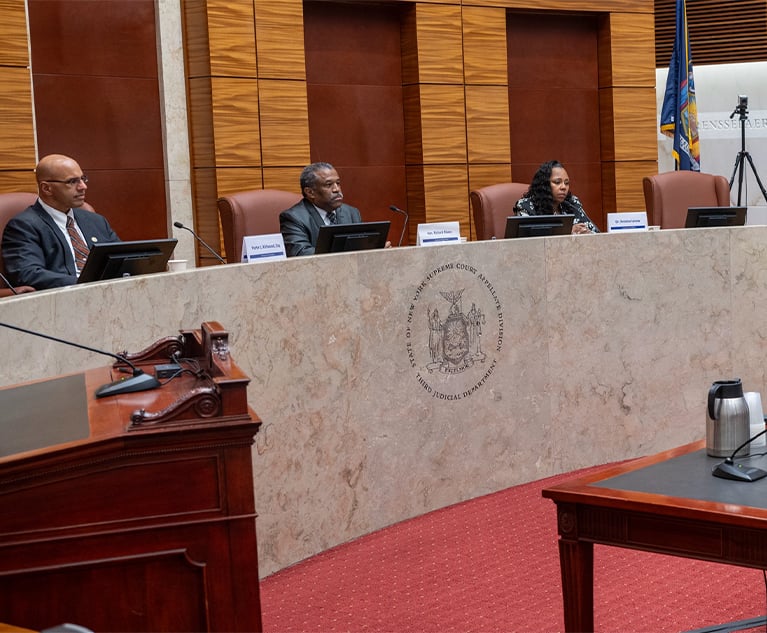
'Reluctant to Trust'?: NY Courts Continue to Grapple With Complexities of Jury Diversity
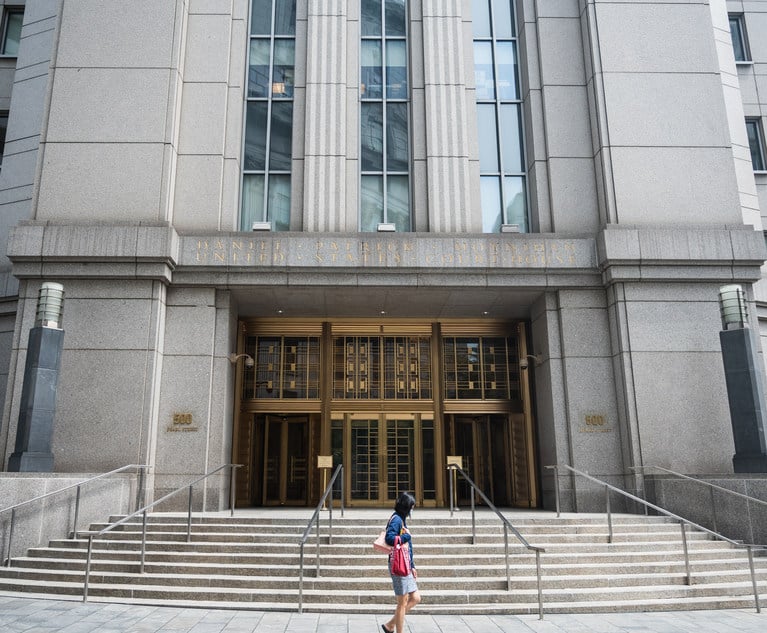
Ex-SDNY Clerk Can't Convince 2nd Circuit That Bribery Sentence Was Improper
3 minute read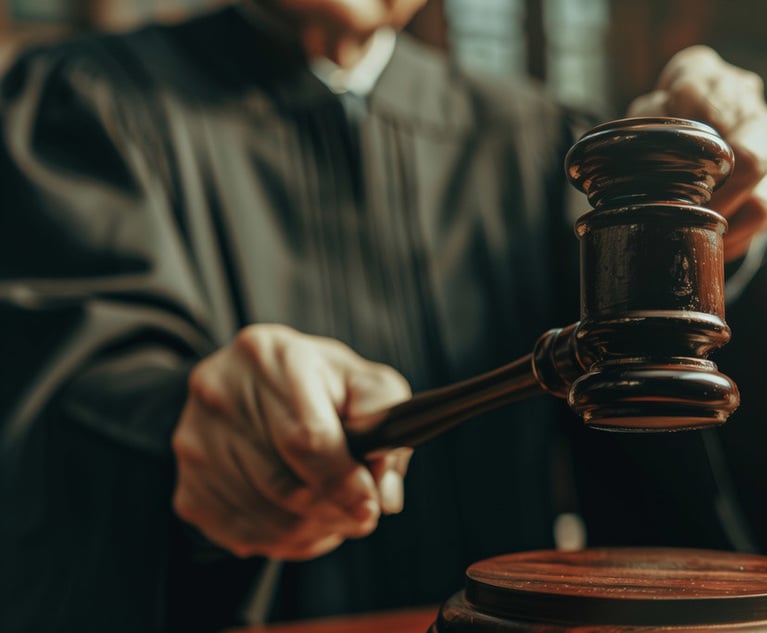
Who Are the Judges Assigned to Challenges to Trump’s Birthright Citizenship Order?
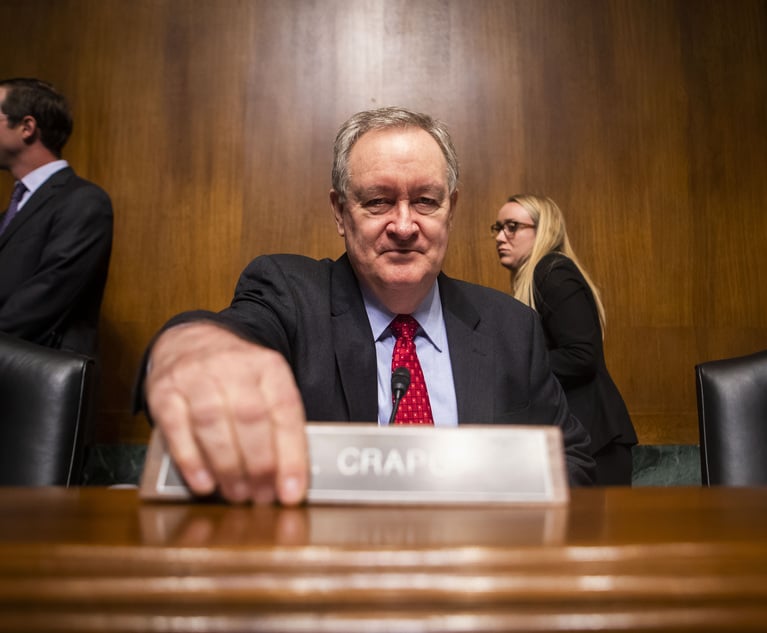
Senator Plans to Reintroduce Bill to Split 9th Circuit
Trending Stories
Who Got The Work
J. Brugh Lower of Gibbons has entered an appearance for industrial equipment supplier Devco Corporation in a pending trademark infringement lawsuit. The suit, accusing the defendant of selling knock-off Graco products, was filed Dec. 18 in New Jersey District Court by Rivkin Radler on behalf of Graco Inc. and Graco Minnesota. The case, assigned to U.S. District Judge Zahid N. Quraishi, is 3:24-cv-11294, Graco Inc. et al v. Devco Corporation.
Who Got The Work
Rebecca Maller-Stein and Kent A. Yalowitz of Arnold & Porter Kaye Scholer have entered their appearances for Hanaco Venture Capital and its executives, Lior Prosor and David Frankel, in a pending securities lawsuit. The action, filed on Dec. 24 in New York Southern District Court by Zell, Aron & Co. on behalf of Goldeneye Advisors, accuses the defendants of negligently and fraudulently managing the plaintiff's $1 million investment. The case, assigned to U.S. District Judge Vernon S. Broderick, is 1:24-cv-09918, Goldeneye Advisors, LLC v. Hanaco Venture Capital, Ltd. et al.
Who Got The Work
Attorneys from A&O Shearman has stepped in as defense counsel for Toronto-Dominion Bank and other defendants in a pending securities class action. The suit, filed Dec. 11 in New York Southern District Court by Bleichmar Fonti & Auld, accuses the defendants of concealing the bank's 'pervasive' deficiencies in regards to its compliance with the Bank Secrecy Act and the quality of its anti-money laundering controls. The case, assigned to U.S. District Judge Arun Subramanian, is 1:24-cv-09445, Gonzalez v. The Toronto-Dominion Bank et al.
Who Got The Work
Crown Castle International, a Pennsylvania company providing shared communications infrastructure, has turned to Luke D. Wolf of Gordon Rees Scully Mansukhani to fend off a pending breach-of-contract lawsuit. The court action, filed Nov. 25 in Michigan Eastern District Court by Hooper Hathaway PC on behalf of The Town Residences LLC, accuses Crown Castle of failing to transfer approximately $30,000 in utility payments from T-Mobile in breach of a roof-top lease and assignment agreement. The case, assigned to U.S. District Judge Susan K. Declercq, is 2:24-cv-13131, The Town Residences LLC v. T-Mobile US, Inc. et al.
Who Got The Work
Wilfred P. Coronato and Daniel M. Schwartz of McCarter & English have stepped in as defense counsel to Electrolux Home Products Inc. in a pending product liability lawsuit. The court action, filed Nov. 26 in New York Eastern District Court by Poulos Lopiccolo PC and Nagel Rice LLP on behalf of David Stern, alleges that the defendant's refrigerators’ drawers and shelving repeatedly break and fall apart within months after purchase. The case, assigned to U.S. District Judge Joan M. Azrack, is 2:24-cv-08204, Stern v. Electrolux Home Products, Inc.
Featured Firms
Law Offices of Gary Martin Hays & Associates, P.C.
(470) 294-1674
Law Offices of Mark E. Salomone
(857) 444-6468
Smith & Hassler
(713) 739-1250








